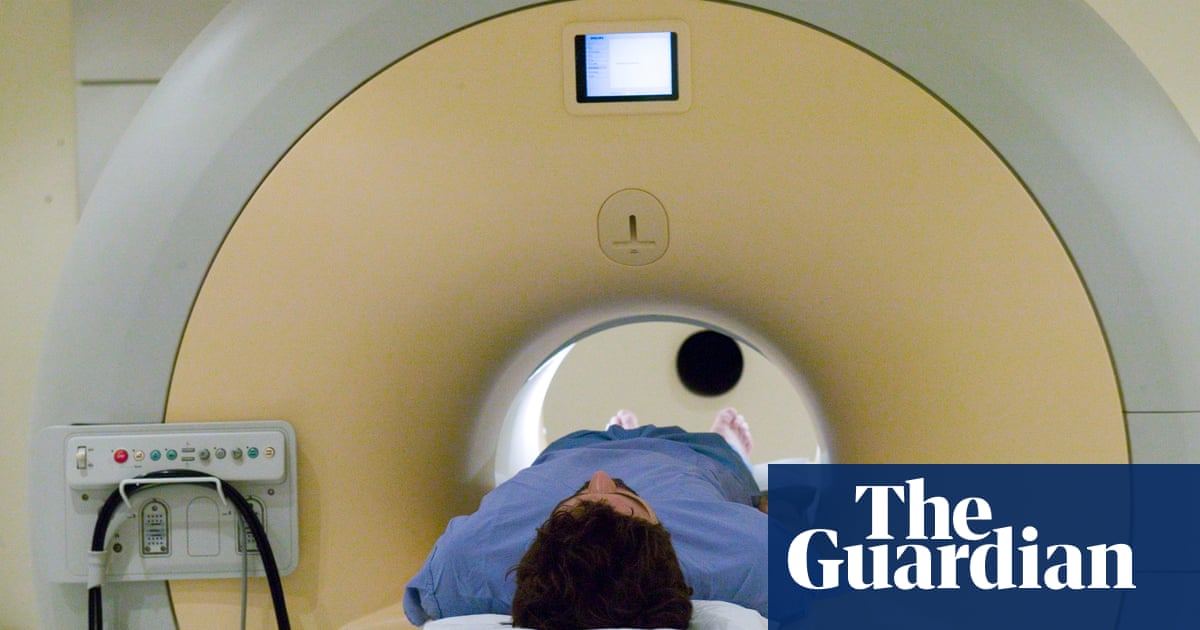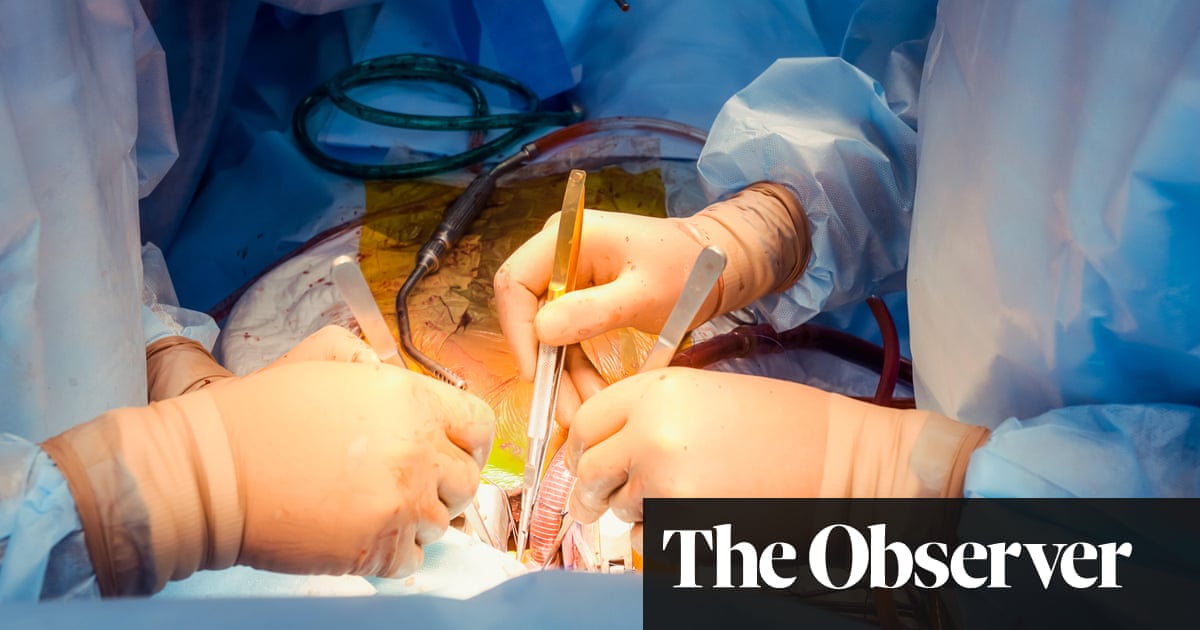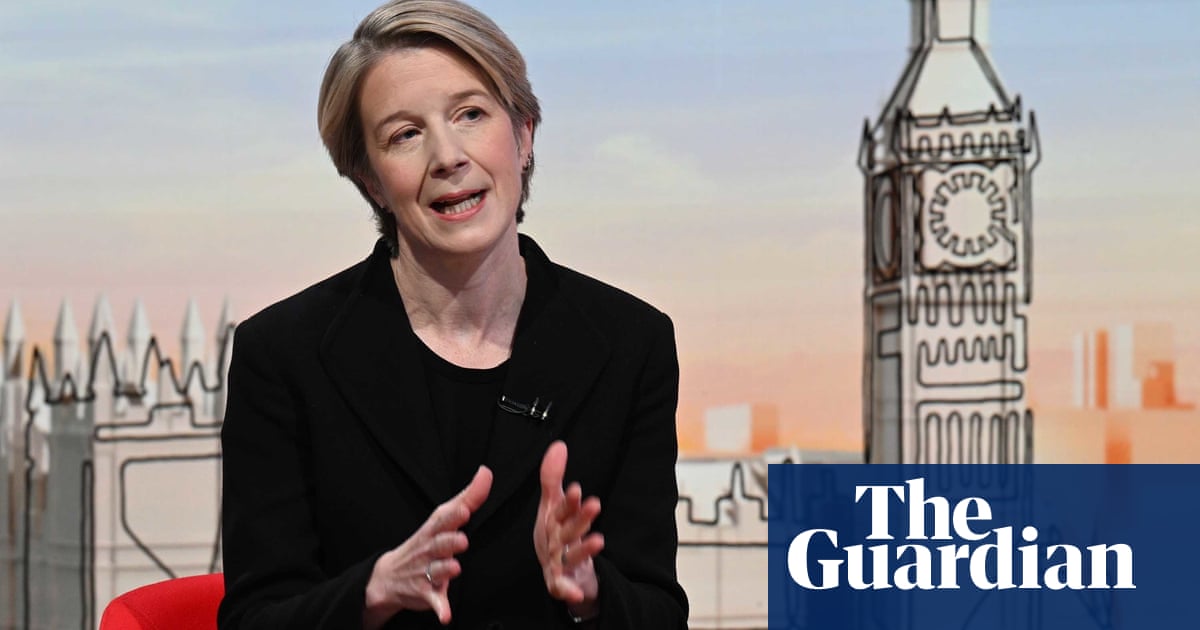
Medical teams have warned that some diagnostic services in the NHS are “close to failure”, with more than 184,000 patients in England waiting three months or longer for key tests.
Children in some specialist hospitals are among those waiting several weeks for diagnostic procedures, in breach of government targets.
Under the NHS constitution, patients should wait less than six weeks for such tests, which include magnetic resonance imaging (MRI) scans, non-obstetric ultrasounds, heart procedures and lung function tests.
Doctors and radiographers say they are working at “over capacity” and that the current approach to reducing waiting times in the face of staff shortages is “reckless and unsustainable”.
An analysis by the Observer of the latest waiting times for diagnostic tests at the end of October found:
Patients at University Hospitals of Leicester NHS trust face some of the longest waits in the country. The most recent figures show 14,437 patients at the trust had been waiting 13 weeks or longer for key diagnostic tests.
At Great Ormond Street Hospital for Children NHS foundation trust in London, 194 patients had been waiting six weeks or longer and 30 patients had been waiting 13 weeks or longer for diagnostic procedures. There are waiting times of several weeks for some children for MRI scans and echocardiograms, used to assess heart structure and function.
At some of the country’s biggest trusts, more than half of all patients referred for tests had been waiting six weeks or longer. These include Lancashire Teaching Hospitals NHS foundation trust; United Lincolnshire Hospitals NHS trust; and York and Scarborough Teaching Hospitals NHS foundation trust.
Richard Evans, chief executive of the Society of Radiographers, the professional body for the diagnostic imaging and radiotherapy workforce, said: “Demanding that exhausted radiographers and others work unprofessionally and unsafely strikes at the heart of the values that keep the NHS afloat.”
At the end of October 2022, 426,003 patients had been waiting six weeks or more in England for 15 key diagnostic tests and procedures, which was 27.5% of the total patients waiting. The number of patients waiting 13 weeks or longer was 184,187.
The operational standard is that less than 1% of patients should have to wait six weeks or longer. More than 2m diagnostic procedures are carried out in the NHS in England each month for a range of purposes, including diagnosing cancer, identifying heart disease and establishing the extent of musculoskeletal injuries.
The government is opening new community diagnostic centres but many patients face waits of several weeks for tests despite this additional investment.
There are also big variations in waiting times. At United Lincolnshire hospitals NHS trust, 8,370 patients out of 21,661 (38.6%) faced waits of 13 weeks or longer for diagnostic tests, while at King’s College hospital NHS foundation trust, just 70 patients out of 11,808 (0.6%) faced waits of 13 weeks or longer.
In three of the major specialist trusts for children alone – Great Ormond Street, Alder Hey Children’s NHS foundation trust in Liverpool, and Sheffield Children’s NHS foundation trust – more than 300 patients in total were waiting 13 weeks or longer for key diagnostic tests. These include MRI scans; respiratory physiology tests, which look at lung function in possible sleep disorders; and urodynamics, which measures bladder function.
A briefing published last month by the Imaging and Oncology Forum, which includes the Society of Radiographers and the Royal College of Radiologists, warned that diagnostic imaging services were being “brought close to failure”. It stated: “Over-capacity working threatens patient safety, is harming healthcare professionals and is challenging service quality.”
Dr Katharine Halliday, president of the Royal College of Radiologists, said: “We weren’t coping before Covid, but the pandemic made it much worse. It is distressing for people to feel they are not offering a good service. Patients are waiting much longer, and most things get worse while you are waiting.”
A spokesperson for Great Ormond Street hospital said: “Referrals are risk-assessed, and all urgent diagnostics will be prioritised and patients seen before six weeks. Our latest figures show that 15% of patients are waiting longer than six weeks for a diagnostic test.” The spokesperson said the new community centres were mainly designed for adults.
A spokesperson for Alder Hey children’s NHS foundation trust said there were “robust” plans to reduce the waiting times for all diagnostic tests to below six weeks by April. The spokesperson said many diagnostic services, such as radiology, had provided all tests within six weeks in November.
A spokesperson for United Lincolnshire hospitals NHS trust apologised for longer waiting times and said it had “processes in place to ensure those who require diagnostic tests urgently receive them in the appropriate timeframe”. It said an arson attack at Lincoln County hospital this year had destroyed a scanner and reduced capacity.
An NHS spokesperson said: “Despite the ongoing pressures on services which are exacerbated by flu hospitalisations, the issues in social care where we cannot discharge patients who are ready, and the record numbers needing A&E, NHS staff continue and have powered through to bring down some of our longest waits for care including tens of thousands more people getting the diagnostic tests and checks they needed in October compared to the previous month.
“The NHS is rolling out more than 100 community diagnostic centres, so even more people can get tested, alongside expanding its imaging and endoscopy capacity in the new year.”












